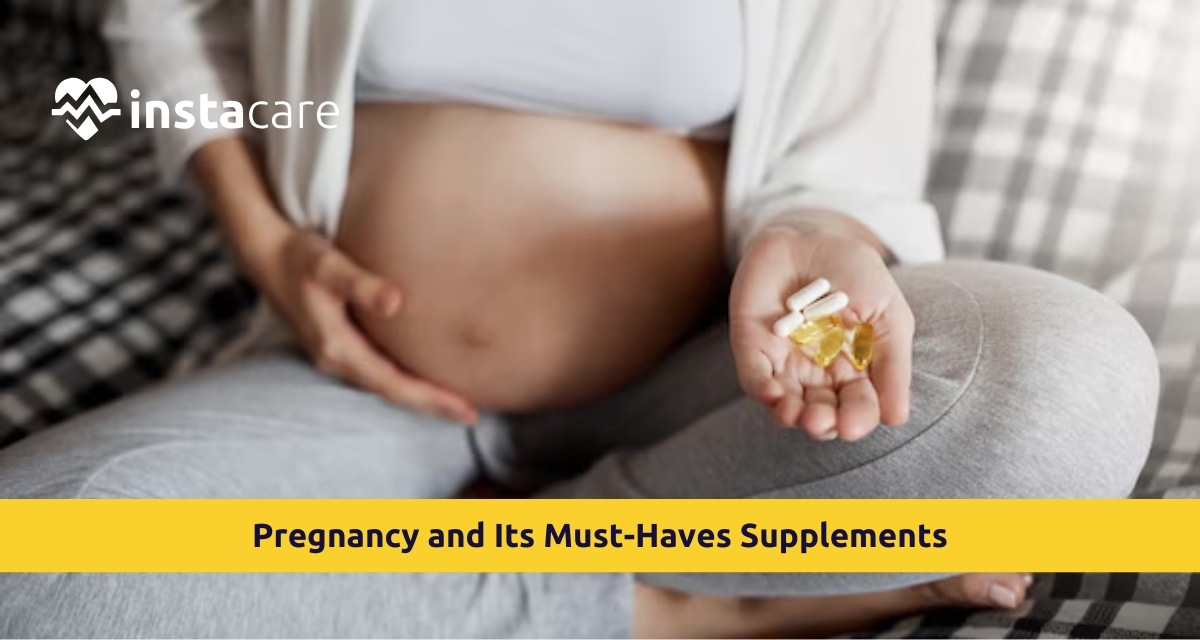Gender likewise influences body change as much as pregnancy, which brings dramatic, changes to women’s bodies. In such circumstances, nutrition as well as health care has to be given due attention. Though the proper diet is always in demand, there are times when it does not meet the increased nutritional needs of both the mother and the baby inside her. Supplements fill in this gap. Knowing what to take and for what reason can bring all the differences between a healthy pregnancy for a mother and an infant.
The Importance of Pregnant Supplements
Pregnancy increases the requirements of nutrients in the
female body. All these must be required to be needed by the development of the
fetus and supplement to fill the diet gap. Yet always consult a prescription
from a health care provider before initiating any supplement diet since people
are different concerning health conditions, dietary needs, and the whole health
requirements.
Some Basic Supplements
Some of the most important supplements for pregnant women
are as follows.
Folic Acid
Why it’s important: Folic acid is one of the Vitamin B that
plays a role in the formation of a fetus neural tube. At a later embryonic
stage, this tube forms his brain and backbone. Therefore, adequate intake of
folic acid will ensure that the chances of having a case of neural tube defects
are minimal.
As advised by the American CDC, a pregnant or already
pregnant person should take a supplement of folic acid one month after
conception and up to the end of his first trimester in order to at least take
400-800 micrograms of folic acid per day.
Iron
Why it Matters Iron is essential for production of
hemoglobin, an oxygen-transport molecule in blood. Pregnancy increases volume
of blood and creates a very vascular organ-the placenta-so that the iron
requirement is about 27 mg/day. In the absence of adequate stores of iron
during pregnancy, women come at risk of anemia and associated fatigue with
complications of delivery.
Recommended Dosage: An expectant woman needs at least 27 mg
of iron. Most prenatal supplements contain iron, but sometimes, a patient will
be prescribed a daily dose as supplementation to low results in blood tests.
Calcium
Why It Matters Calcium is the nutrition that needs for
developing bones and teeth. Calcium will also enable the mother to retain her
bones healthy. The state of calcium deficiency in a pregnant woman; and then
her body starts taking away from the baby's bone will start sucking, where she
can stay victimized all her life without proper healthy.
Suggested Amount: It’s therefore recommended that through diet and supplement, a pregnant woman should take about 1000mg per day.
DHA, or Docosahexaenoic Acid
Why This Matters DHA is one of the important omega-3 fatty
acids in the development process of a fetus's brain and eyes. Perhaps it even
inhibits preterm birth and delivery with low weight.
Recommended Intake Per Day: Pregnant women should intake
about 200 to 300 mg per day of DHA. This could be through the supplementation
of diet with fish oil or through the dietary intakes with fatty fish such as
salmon.
View More: 10 Early Signs of Pregnancy You Must Know
Vitamin D
Why it matters: Vitamin D has been linked to levels of blood
calcium, effects on bone, and even functioning in the immune system, and with
mood. In other words, a sufficiently good level of vitamin D is vital for
mother and fetus.
Recommended Dose: A pregnant woman should take around 600 to
800 IU of vitamin D per day. This can be much more in their cases if they
consume very poor diet and have limited exposure to sun.
Iodine
Why It Matters Iodine is highly necessary for thyroid
hormones that in the fetus's brain. If the pregnant mother's iodine is inadequately
kept at levels, then there results developmental abnormality along with mental
retardation.
Dosage Recommendation: The amount needed by an expectant
woman on a daily basis is about 220 mcg a day of iodine. This amount can either
be derived from the use of iodized salt or as supplements.
Zinc
Importance: Among the major minerals, one has a very
fundamental role in aiding cell multiplication and growth; boosts the defense
mechanisms of the body and helps during DNA replication
It plays a considerably greater role during fetal
development.
Dosage Recommendations: Pregnant women would need around 11
mg of this nutrient per day.
Multivitamins
Why It Matters: A prenatal multivitamin contains many nutrients
which are in their recommended dietary allowances any pregnant woman or mother
to be may lack in the foods she eats. Pregnant woman nutrients are sometime
found in it and at times it may contain additives that pregnant woman are
supposed to take.
Recommended Dosage: the one to be taken is mentioned on the
prenatal vitamin bottle or any doctor may prescribe one to you.
Food Sources of Essential Nutrients
This mainly requires supplementation, but nutritional dieting must be promoted. The richest food sources for the essential nutrients include:
- Folic Acid: dark leafy greens, legumes, citrus fruits, nuts,
and fortified cereals.
- Iron: lean meats, spinach, lentils, beans, and fortified
cereals.
- Calcium: dairy products, dark green leafy greens, almonds,
and fortified plant-based milks.
- DHA: fatty fish (salmon, sardines), fish oil supplements,
and algae-based supplements.
- Vitamin D: Fatty fish, fortified dairy products, and
sunlight.
- Iodine: Iodized salt, dairy products, and seafood.
- Zinc: Meat, shellfish, legumes, seeds, and nuts.
Conclusion
Appropriate foods should be chosen if the mother is pregnant
in order to ensure enough nutrients are taken by both mother and her or his
baby. There could be folic acid, iron, calcium, DHA, vitamins D, iodine, zinc
and prenatal multivitamin supplements.
Go first to your doctor to get clearance for taking
supplements and to pick the right supplement for you. Healthy discernment in
the responsible use of nutritional aspects will support a healthy pregnancy and
provide the right background for baby growth and development.
Please book an appointment with the Best Gynecologist in Lahore, Karachi, Islamabad, and all major cities of Pakistan through InstaCare, or call our helpline at 03171777509 to find a verified doctor for your disease.












